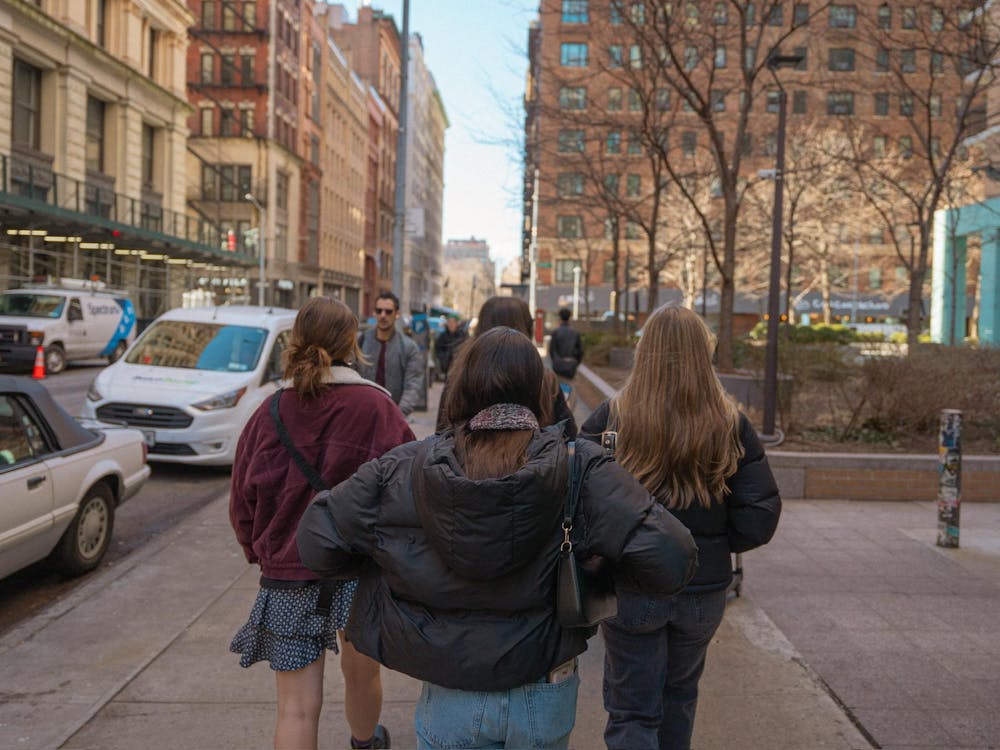According to Secretary of Education Betsy Devos, college students nationwide are faced with professors who will “tell you what to do, what to say, and more ominously, what to think.” Devos then warned her audience, “the real threat is silencing the First Amendment rights of people with whom you disagree.”
Devos isn’t entirely wrong. There is a widespread left-leaning bias in higher education, and we certainly don’t want to silence differing points of view by default. So should our professors refrain from voicing their personal opinions in class?
Absolutely not.
Devos seems to think college students are a demographic you can just “tell what to think.” If that were the case, campuses wouldn’t see the sheer number of student protests they do. It’s practically a cliché: 1 in 10 students expect to participate in a protest by the time they graduate, according to a study done by UCLA’s Higher Education Research Institute.
The concern that Devos and others have is that openly opinionated faculties come at the expense of “ideological diversity,” where students who disagree with their professors feel pressured to keep their opinions to themselves, and so the overall quality of campus conversation suffers.
But if this is really a problem, it won’t go away if both students and professors start biting their tongues. If some students feel they can’t voice their opinions, that’s a clear problem. But if no one feels like they can voice their opinion, that’s even worse.
When professors bring their opinions into a classroom, it’s not because they’re trying to indoctrinate the (voting-age) youth. It’s because they’re passionate and incredibly well-informed about their subjects and have the definitive platform to share. Their enthusiasm is contagious, inspiring us to dig deeper and form our own opinions.
When a professor offers up a relevant personal opinion, they set an example and invite further discussion. A student might follow their example by offering up an opinion of their own, which can prompt a wider dialogue with other students in turn. But without the professor’s initiative, “ideologically diverse” conversations won’t always happen in a civil or constructive way.
Professors should obviously be mindful of how they present their beliefs. Sharing an opinion adds the most value to a classroom when it’s connected to the material. It shouldn’t feel like the lecture is a secondary priority to the professor’s personal views. When a statement is a matter of opinion, it should be clear to the student.
In essence, the professor should exercise common sense.
Common sense also means that desperate times call for desperate measures. If a professor has been studying ecology and the environment since before you were born and they say, “In my opinion, this country’s awful political climate is directly responsible for the slow, painful death of our actual climate and we’re basically all complicit,” then maybe it’s not a both-sides kind of issue, and the best course of action is to bite your tongue and compost.
In our experience, professors here at the University of Portland do a fantastic job of adding personal flair to their classrooms. Professors thoughtfully integrate their point of view into classroom discussions and (usually) tie everything back to the course material. For example, philosophy professor Santana using interviews with Kellyanne Conway to demonstrate informal fallacies, or environmental science professor Kolmes’ infamous “Doom and Gloom” seminars.
Think about your favorite teachers and professors throughout over a decade of education. Were they the ones who taught out of a textbook and kept quiet? Not likely. The professors you remember are the ones that influence you, that inspire you. Remember this next time course evaluations roll around.
But if you don’t share our experience and feel silenced in classrooms at UP for any reason, we’d love to know why.
Do you agree with us? Disagree? Have something to say about this? Voice your opinion in The Beacon.








